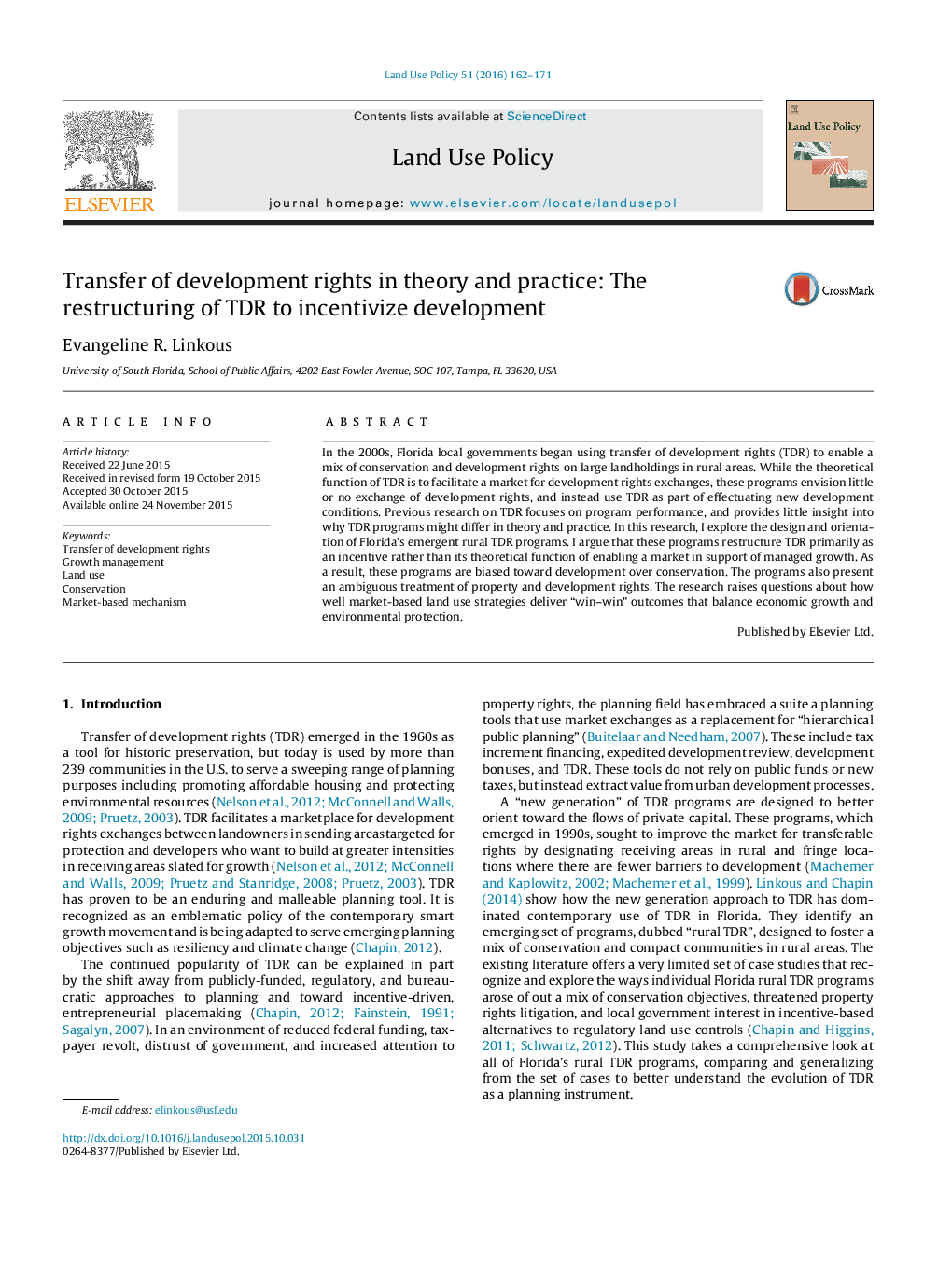| Article ID | Journal | Published Year | Pages | File Type |
|---|---|---|---|---|
| 92903 | Land Use Policy | 2016 | 10 Pages |
•Compares theoretical role of TDR as a market to its use in practice as an incentive.•Explores TDR use in rural context of obsolete entitlements and large landholdings.•Identifies TDR program policies that facilitate development outcomes.•Rural TDR programs foster development, but set only weak conservation provisions.
In the 2000s, Florida local governments began using transfer of development rights (TDR) to enable a mix of conservation and development rights on large landholdings in rural areas. While the theoretical function of TDR is to facilitate a market for development rights exchanges, these programs envision little or no exchange of development rights, and instead use TDR as part of effectuating new development conditions. Previous research on TDR focuses on program performance, and provides little insight into why TDR programs might differ in theory and practice. In this research, I explore the design and orientation of Florida’s emergent rural TDR programs. I argue that these programs restructure TDR primarily as an incentive rather than its theoretical function of enabling a market in support of managed growth. As a result, these programs are biased toward development over conservation. The programs also present an ambiguous treatment of property and development rights. The research raises questions about how well market-based land use strategies deliver “win–win” outcomes that balance economic growth and environmental protection.
